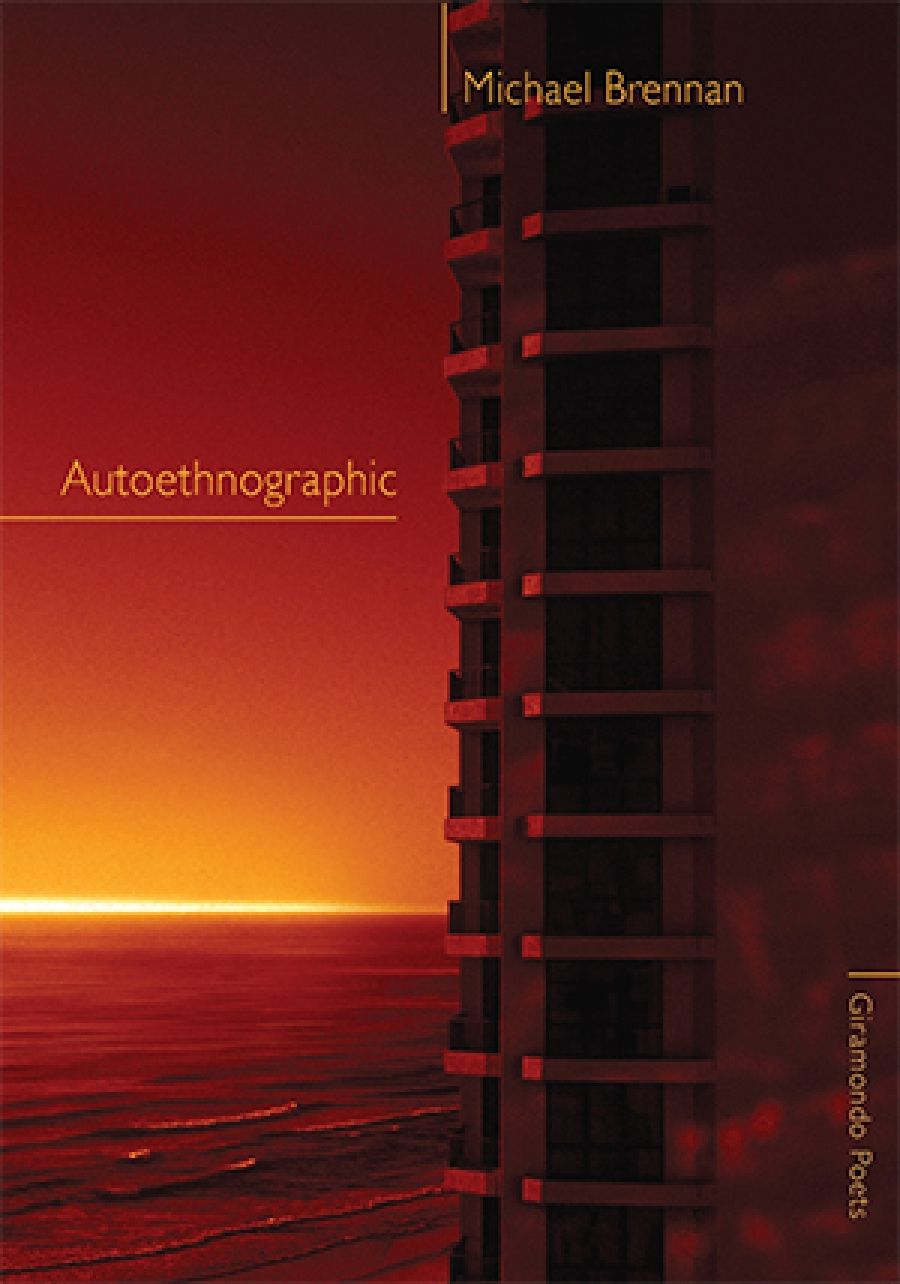
- Free Article: No
- Contents Category: Poetry
- Review Article: Yes
- Online Only: No
- Custom Highlight Text:
Michael Brennan has looked into the future in his new poetry collection, Autoethnographic, and come to the obligatory dsytopic conclusions. There is global warming, social breakdown, closed airports and borders, and so on, and, of course, a mysteriously catalytic event – in this case it is called The Great Forgetting. It would be a mistake, though, to think that Brennan is some kind of post-everything Hanrahan, because he and his characters seem to be loving every minute of it. Picaresque, spiky, with an infectious rhythm that makes Brennan’s tangentially connected mini-narratives almost bounce off the page, it collapses a varied collation of literary modes from the past into a dense knot of decay in the near future.
- Book 1 Title: Autoethnographic
- Book 1 Biblio: Giramondo, $24 pb, 81 pp, 9781920882891
The protagonist’s tales are part Chaucer, part Hunter S. Thompson, two parts Philip Marlowe, and, you realise with a shock of delight, several parts Henry Miller. There’s venery aplenty, and deadpan charm: ‘I spend the daylight / harvesting caresses from a lithe machinist, a / sinewy little clunker called Penny. Eventually / she will figure out I’m not a very good person, / so what’s the point in hiding it, neither is she.’
Brennan manages to do something with the word ‘clunker’ in that passage that is an object lesson in how to make poetry more than the sum of its parts; and he does it all the way through the book. It is a momentary excess, but self-replicating, so that Autoethnographic rewards repeat readings.
Usually, memorable poetry leaves behind an inchoate, gravitational sensation. Brennan’s book doesn’t do that, but doesn’t need to, and, like all truly irresistible books, it obligingly reviews itself, when our hero finds somebody’s lost youth tucked into a book, in ‘Roughly-cut Pages’: ‘It’d started to hum like a cat as I held / it, deeply satisfied, a little fleshy two-stroke idling / beneath soft fur.’


Comments powered by CComment